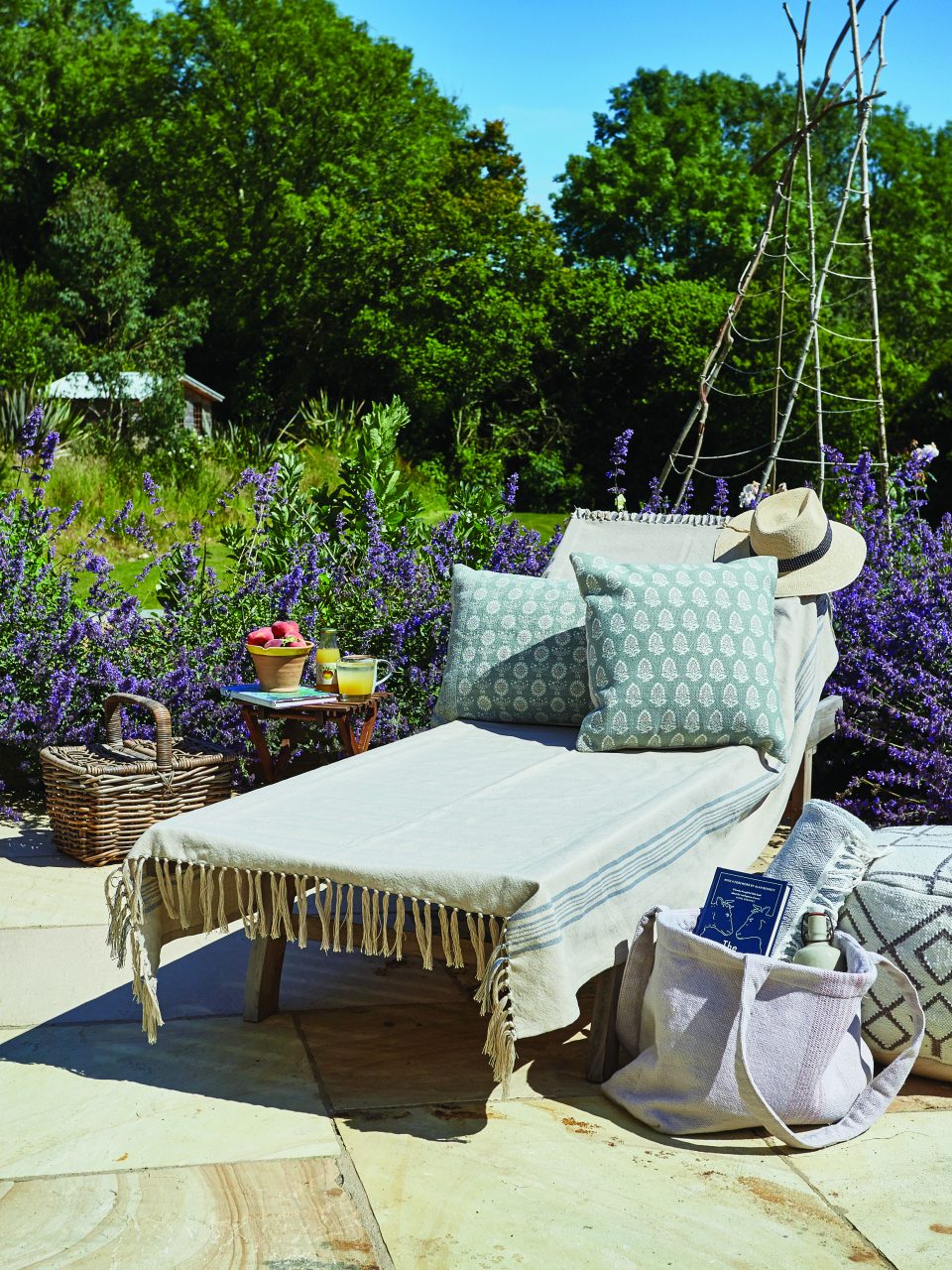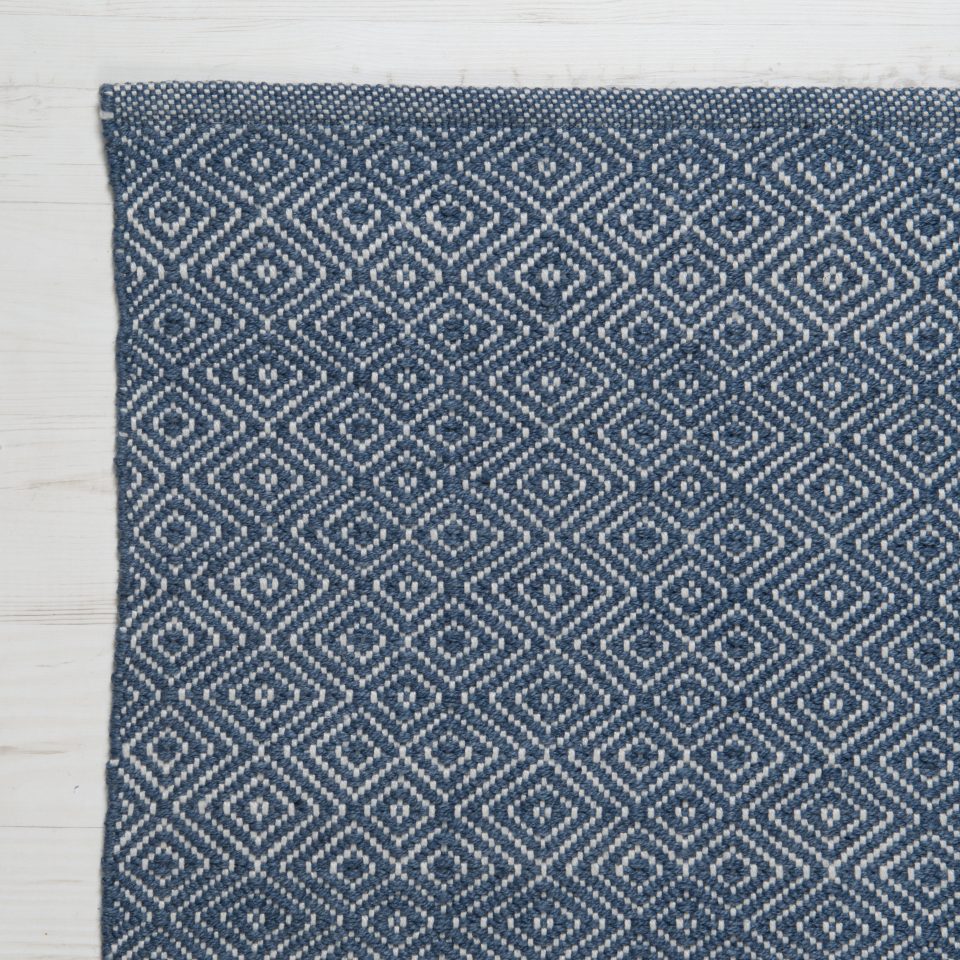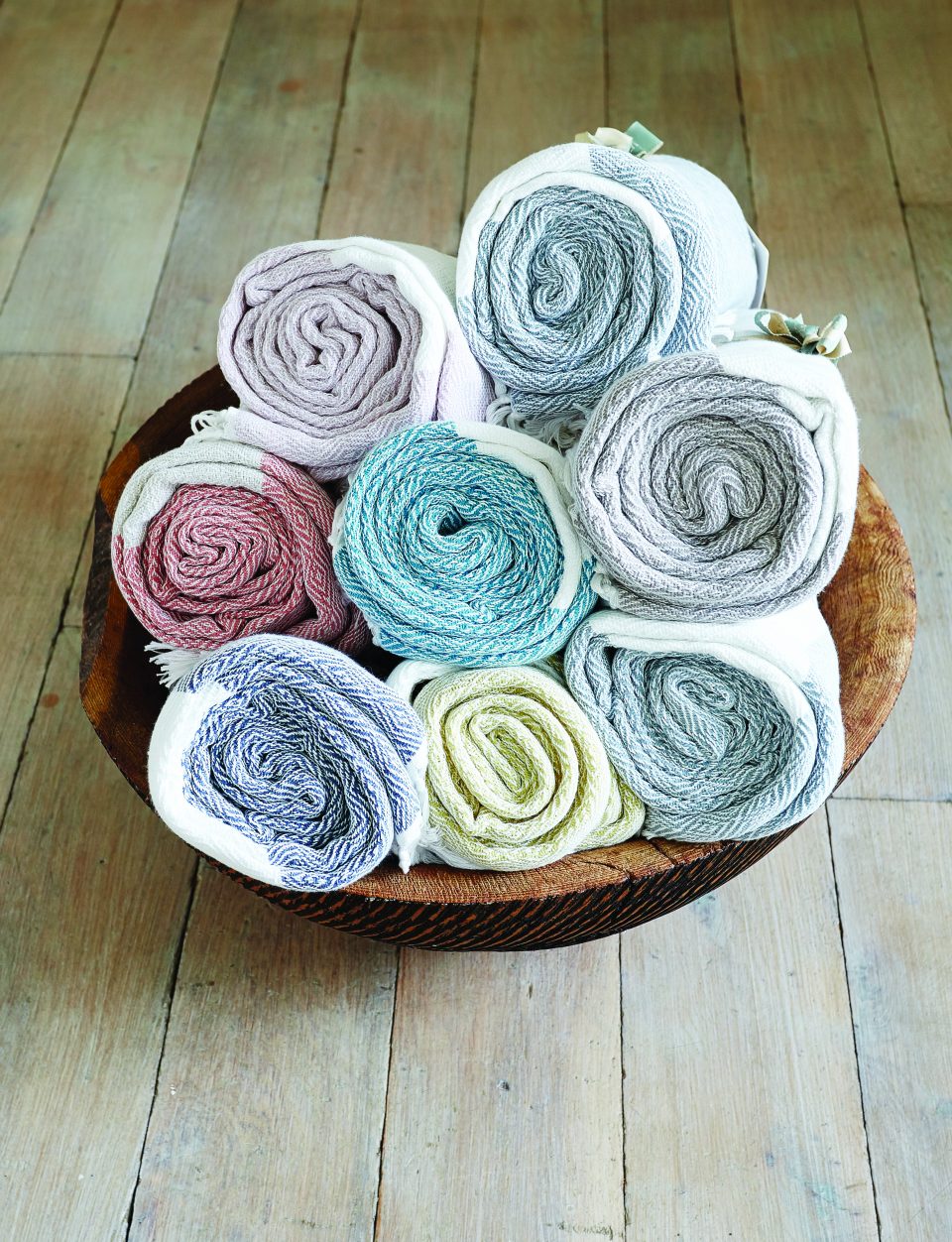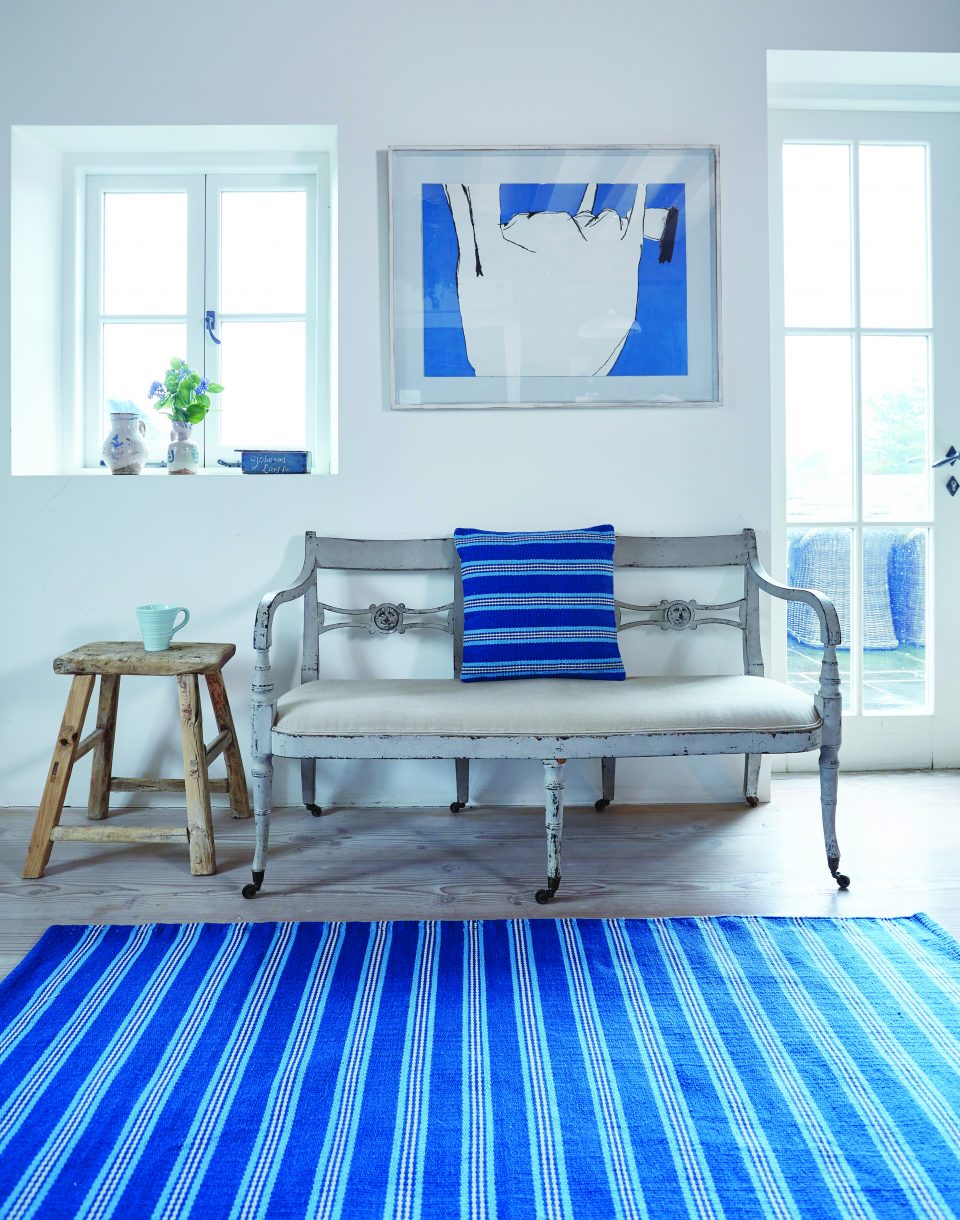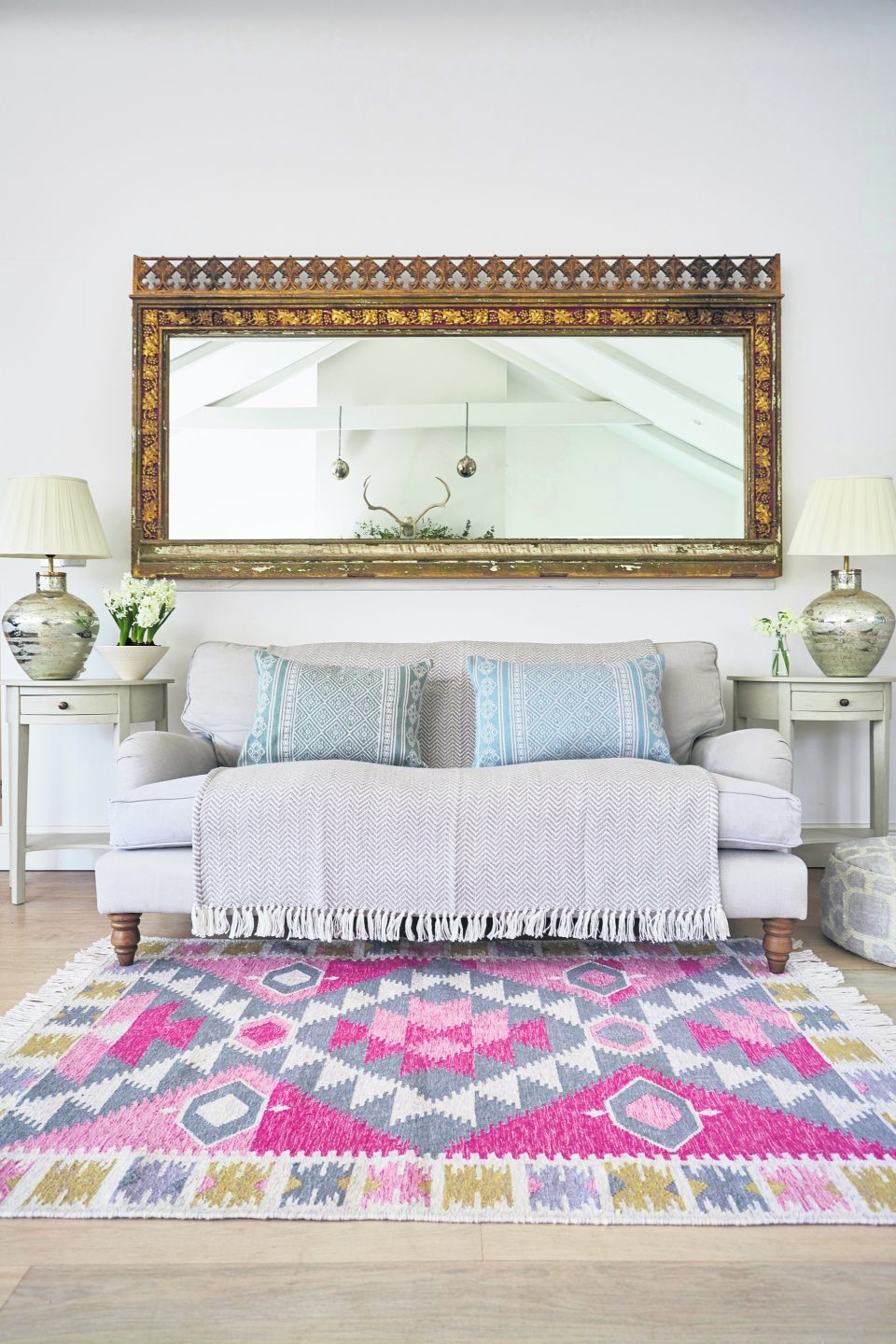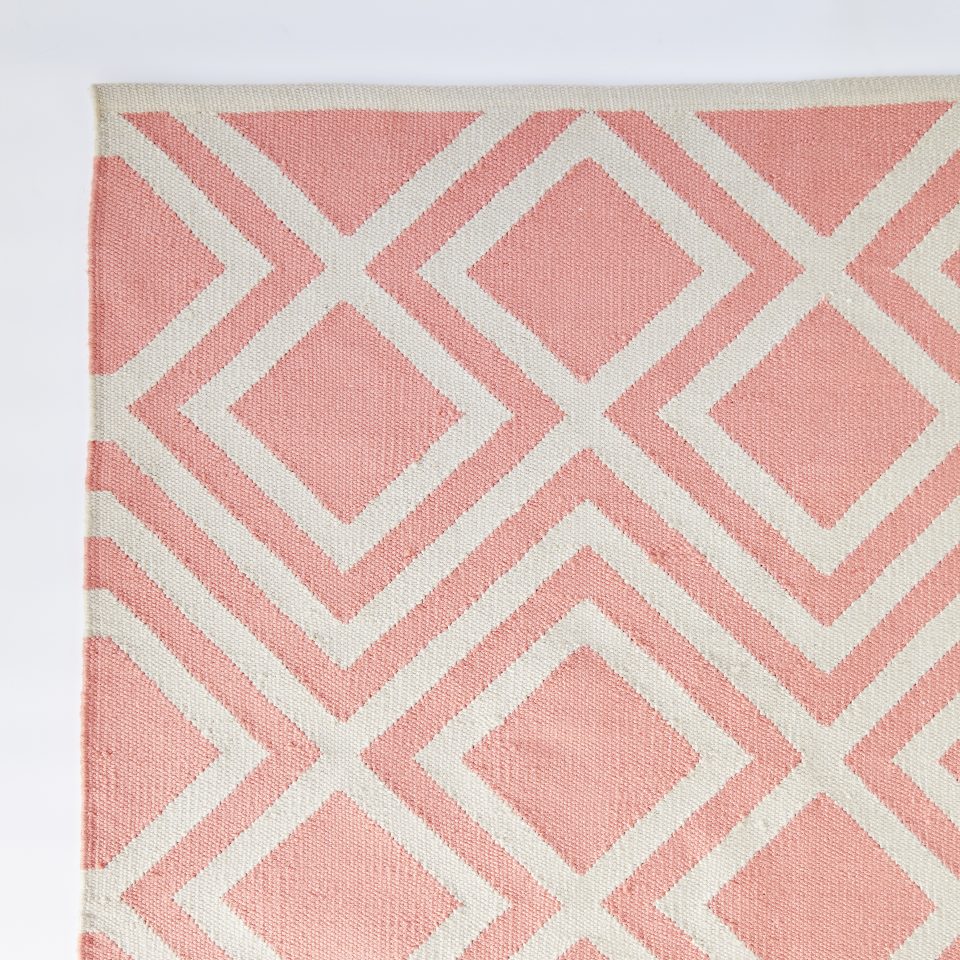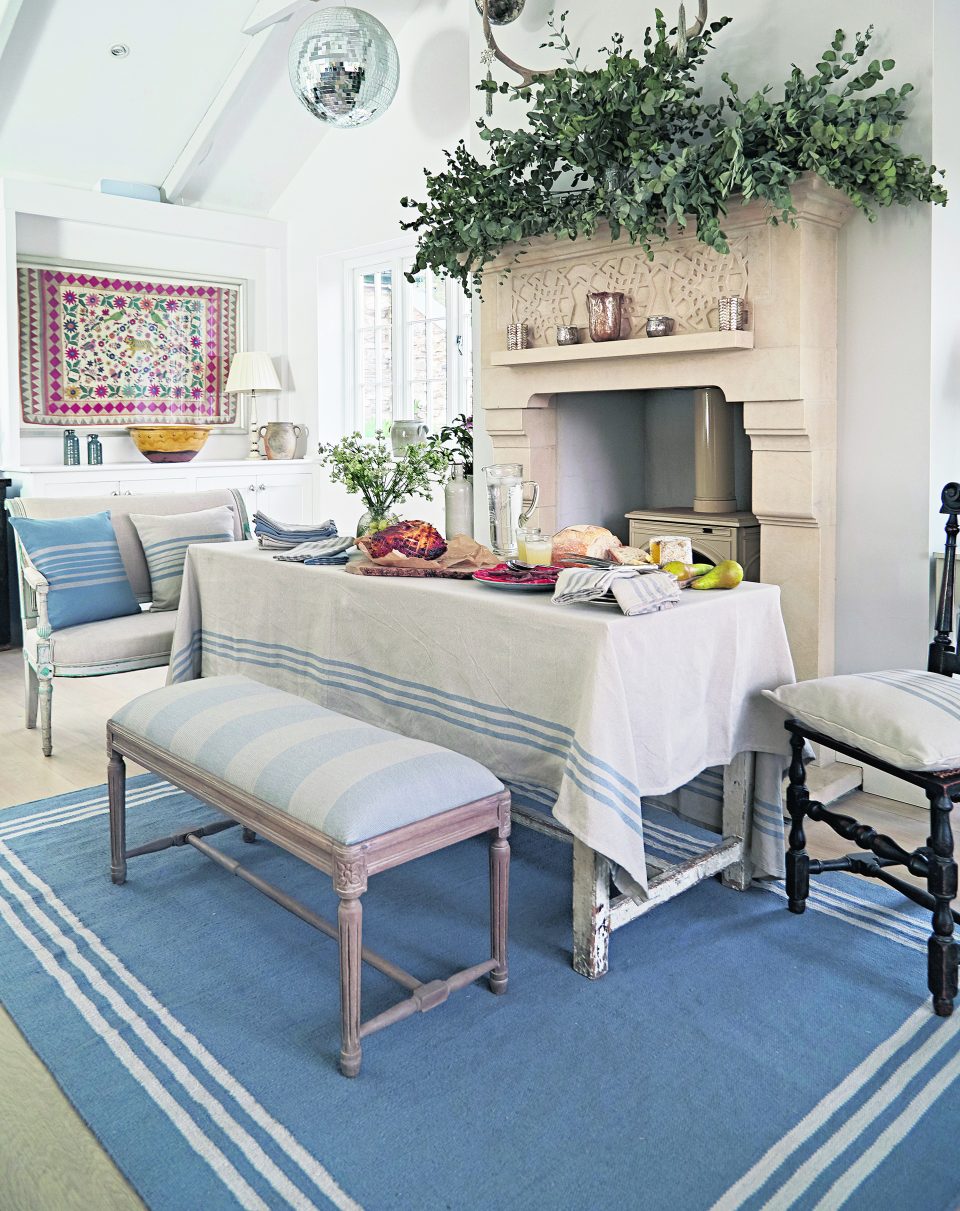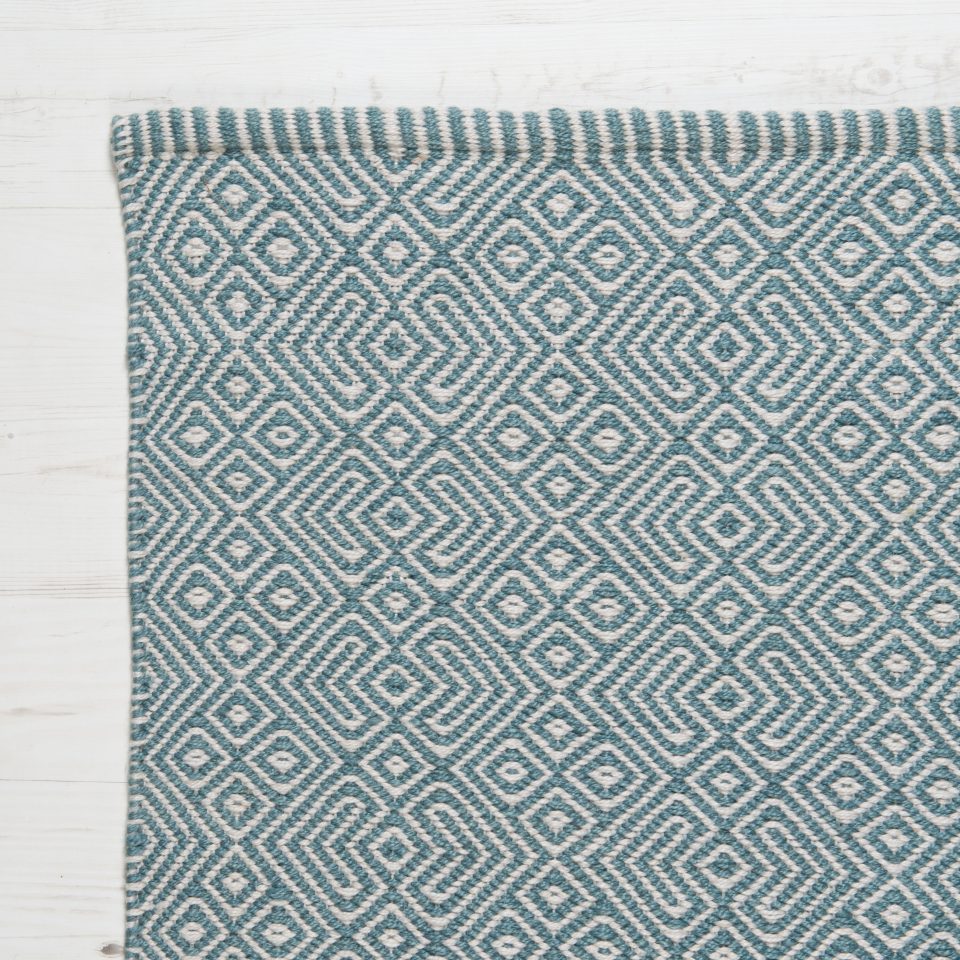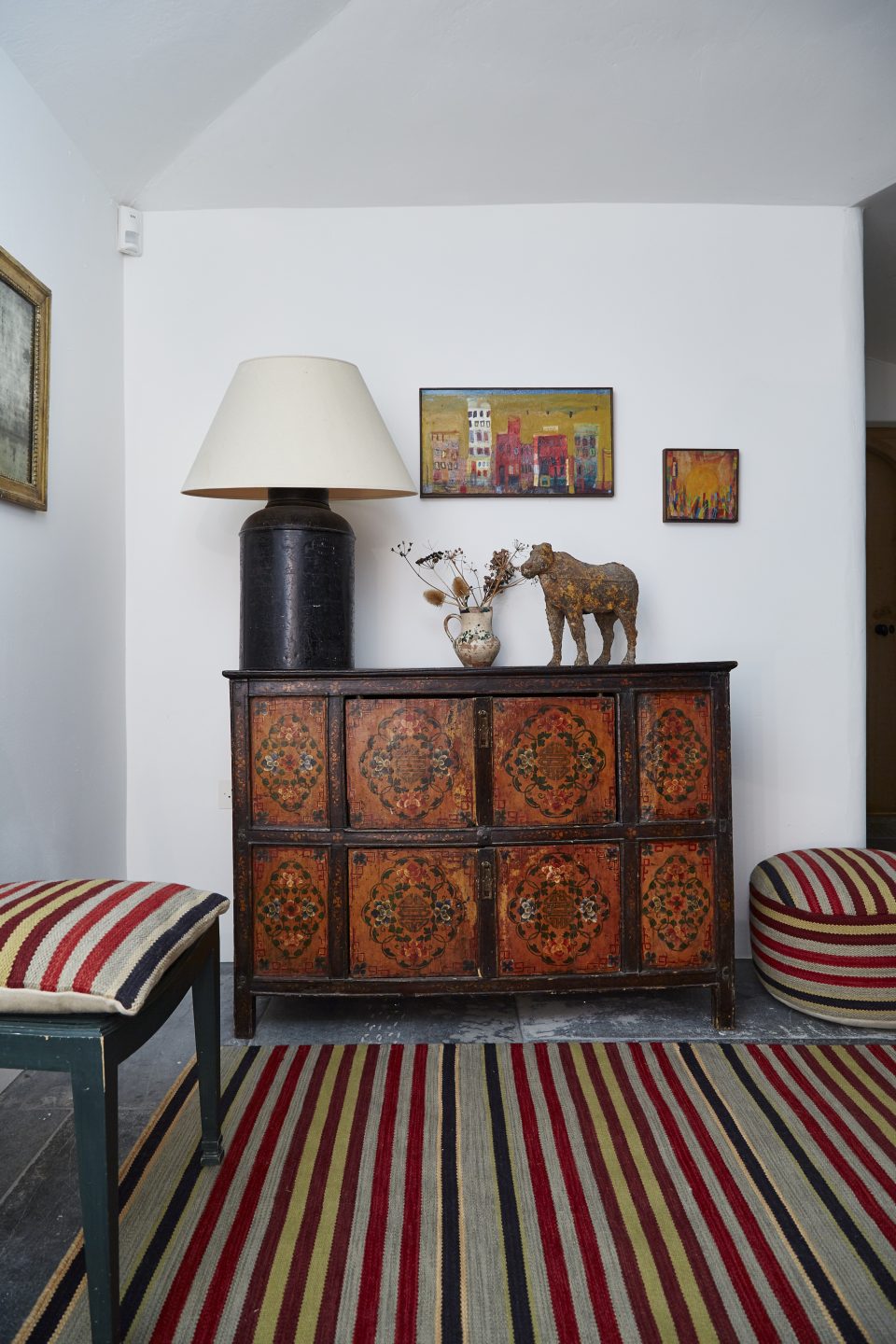Drinks, scraps and weaves: Meet the couple turning plastic bottles into sustainable homeware
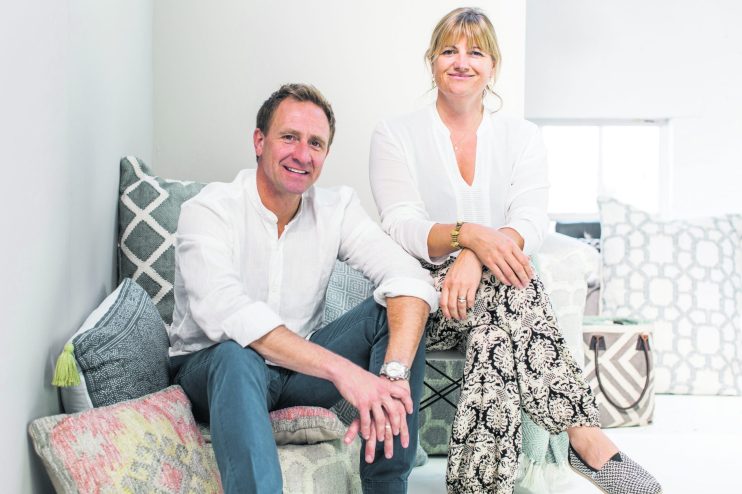
It looks like wool, it weaves like wool, it’s soft like wool and you can wash it like wool. So how can these cosy rugs, cushions and throws be made entirely of recycled plastic bottles?
The husband-and-wife founders of textiles company Weaver Green know the answer because they invented the thread – re-processing tons of single-use waste material into desirable, practical, sustainable homewares that, literally, don’t cost the earth (£45 for a cushion or throw, from £40 for a rug).
But back in 2008 when Tasha and Barney Green founded Weaver Green, no one really cared about their eco efforts. Everyone was too busy worrying about the crash. Like many companies still around today which began life in the teeth of that particular storm, they learned how to put down solid roots. “A financial downturn makes you focus,” Tasha says. “We ran on a shoestring and we weren’t greedy with the margins. We needed to sell lots and move forward, which meant we had to be affordable.”
Tasha says that they started out with the premise that if our homes are a reflection of ourselves then we’re not going to buy eco stuff that’s less than lovely. She says Weaver Green was founded on the core values that everything “has to look beautiful, be practical and have impeccable sustainability”.
They highlight that an astonishing 35 billion plastic bottles are thrown into landfill or end up in our oceans every year (one million every minute), so they asked themselves if they could take some of this waste and turn it into a useful and practical yarn.
100 million plastic bottles recycled
Barney’s time in the flooring industry meant he understood the operations of global weaving houses, and Tasha’s skills running her own organic drinks business, together with a love of antique textiles, gave them the knowledge, the passion and the environmental commitment to start experimenting. They set out to transform hard plastic (the PET found in single-use drinks bottles) into soft, open fibres that would weave like wool. In this process, they discovered that hand weaving was more practical for them than automated looms.
Not only did they come up with their long-strand yarn that reduces microfibre shedding, but Weaver Green is also able to control all aspects of its manufacturing and packaging processes.
“Using low-emission chimneys, we heat our non-toxic dying vats by burning discarded rice and husks, a by-product of local cereal farmers here in Devon, and we re-filter the water in a closed system,” they say. “Whenever possible, our packaging uses sustainable, recycled and recyclable paper and card.” And at the end of the textile’s life (they are machine washable), we can send them to be recycled (only the cushion zips need to be removed).
At the end of last year Weaver Green recycled their 100 millionth plastic bottle – and of these, half have been recovered from streams, rivers and the coast.
“We are happy to give plastic bottles, that are typically only used for a few minutes, the chance to be part of something beautiful that will last for decades to come,” they say.
